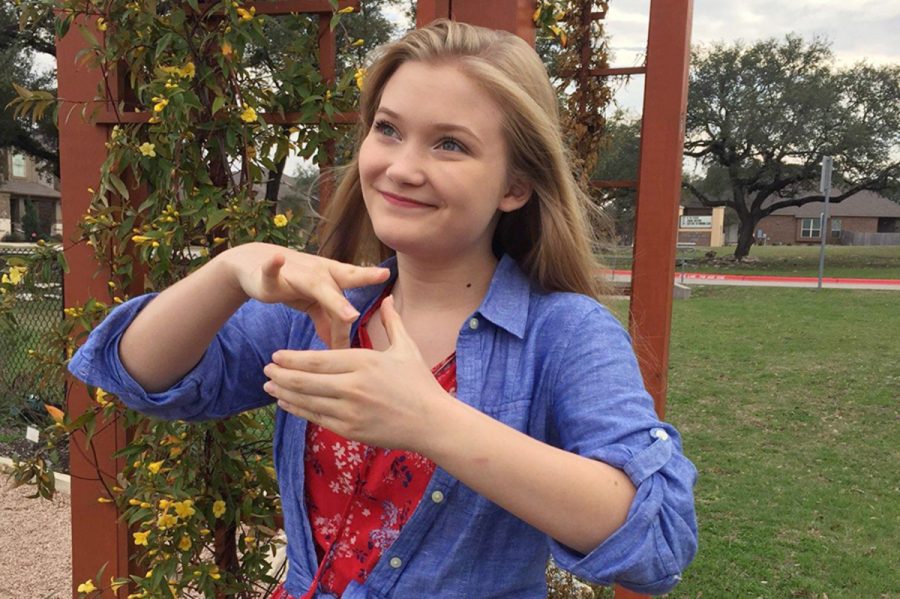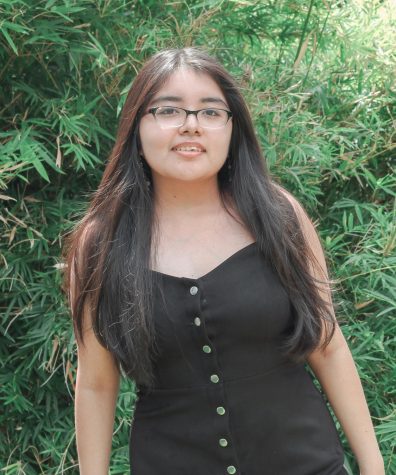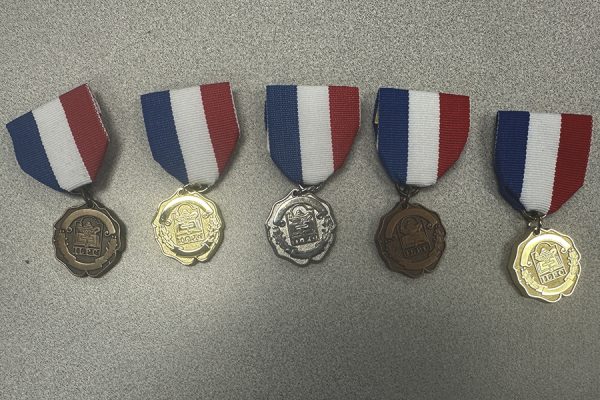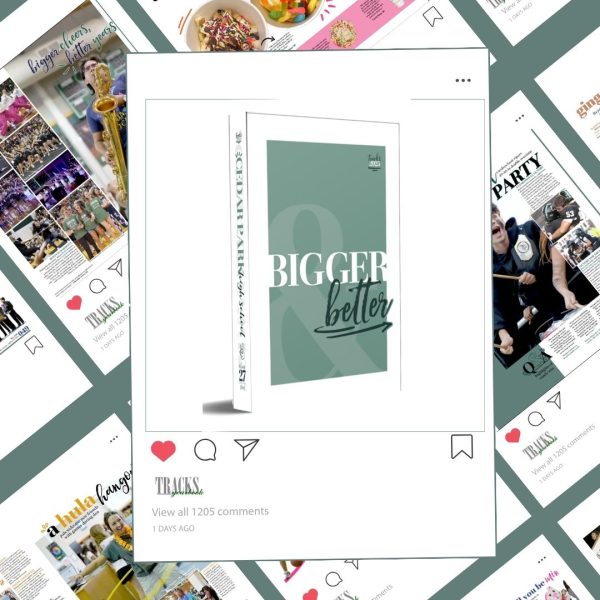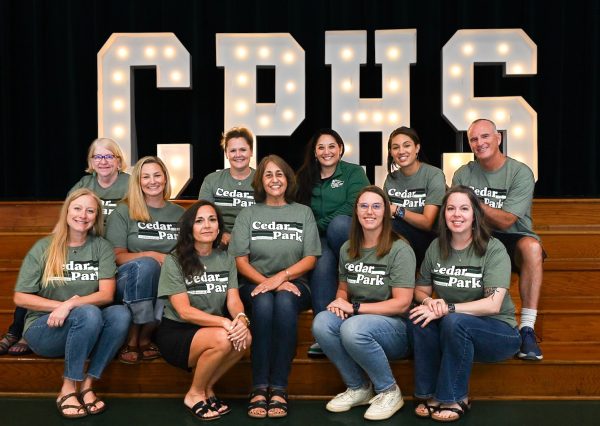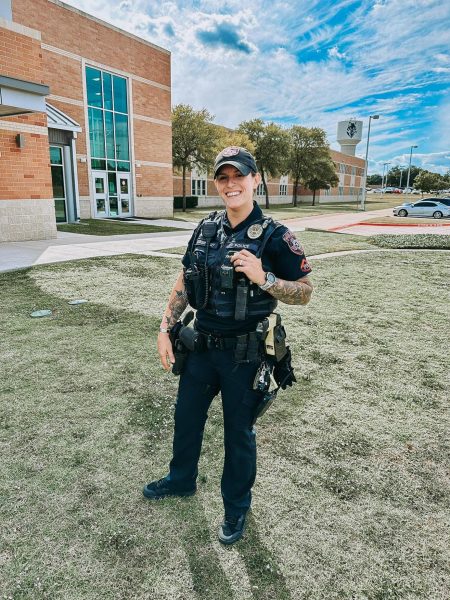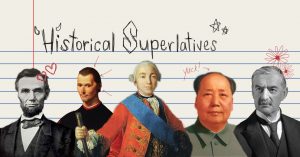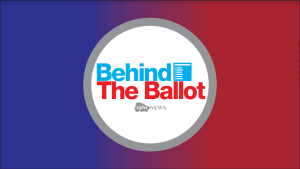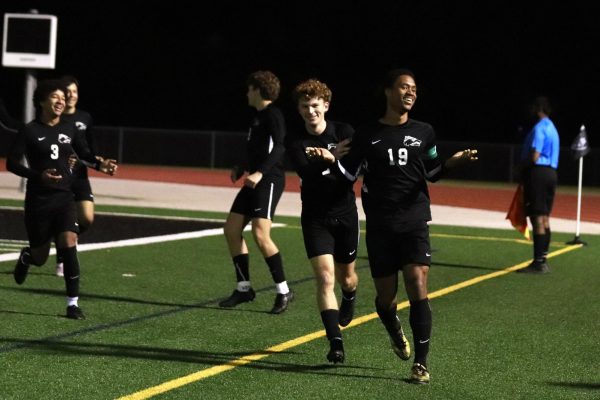Mixing up the Language Salad Bowl
Students Work Towards Fluency for Improved Communication
Freshman Sydney Solberg signs her favorite ASL sign, “tea.”
April 9, 2018
As society and international communications progress, learning new languages is becoming almost an obligatory thing to do. Whether it is learning a lingua franca or a vernacular language, any effort made to broaden horizon can benefit to communicate.
All languages require different amounts of time and dedication to fully become fluent. Alphabets, symbols, pronunciation and the creation of new words all vary between languages.
Freshman Sydney Solberg said how learning ASL became more difficult as time went on.
“It was very easy in the beginning,” Solberg said. “Now that we’re expanding our vocabulary, it’s becoming harder because we are getting into more specific signs and it takes more effort to memorize all of them and practice regularly.”
There are many reasons for people to learn a new tongue. For some, it’s a requirement, and for others, it’s from an ambitious nature to deepen their understanding of communication.
For sophomore Yanjun Williams, learning English was a necessity when she first came to America.
“When I was nine years old, I was adopted and came to America,” Williams said. “I had to learn English because I wanted to be able to speak to my family members.”
Learning a language isn’t always as simple as downloading the Duolingo app. Freshman Hadley Davis said how it is easy to get frustrated while attempting to reach fluency.
“At times there have been some days when I didn’t want to speak Spanish, but in the end, you gotta push through and keep moving forward,” Davis said.
At the age of four, freshman Amber Chung had the urge to take on English. She was offered help from her parents and watched movies with her friends to comprehend the language better.
“I think that when you’re a child you mimic [people],” Chung said. “In a child stage, you pick up things faster and listen more.”
Chung said that it brings her closer to others who have learned a new language.
“The best thing about learning a different language is when you find someone at school and you can converse with them and no one else can understand,” Chung said. “It’s like we have a secret code between us only we can understand.”
Solberg said she was interested in language ever since elementary school when she attended an ASL camp. Now she works toward the goal of fluency and said she believes language is the gateway to connecting with people throughout the world.
“It’s very important [to learn a language],” Solberg said. “It’s an essential way to communicate with people from other countries and backgrounds, whether they can hear or not.”

![Posing with their UIL State Trophy, the Robolobos Van Halen Team beams with excitement after their win. “It was a team effort,” junior Noah Vo said. “I was happy because something happened in the first match and the match was also really close. So [when] they finally revealed it, I was pretty happy.” Photo courtesy of Amy Lovelace](https://cphswolfpack.com/wp-content/uploads/2025/05/IMG_0910-EDIT-1200x723.jpg)

![Broadcast, yearbook and newspaper combined for 66 Interscholastic League Press Conference awards this year. Yearbook won 43, newspaper won 14 and broadcast took home nine. “I think [the ILPC awards] are a great way to give the kids some acknowledgement for all of their hard work,” newspaper and yearbook adviser Paige Hert said. “They typically spend the year covering everyone else’s big moments, so it’s really cool for them to be celebrated so many times and in so many different ways.”](https://cphswolfpack.com/wp-content/uploads/2025/05/edited-ILPC.jpg)
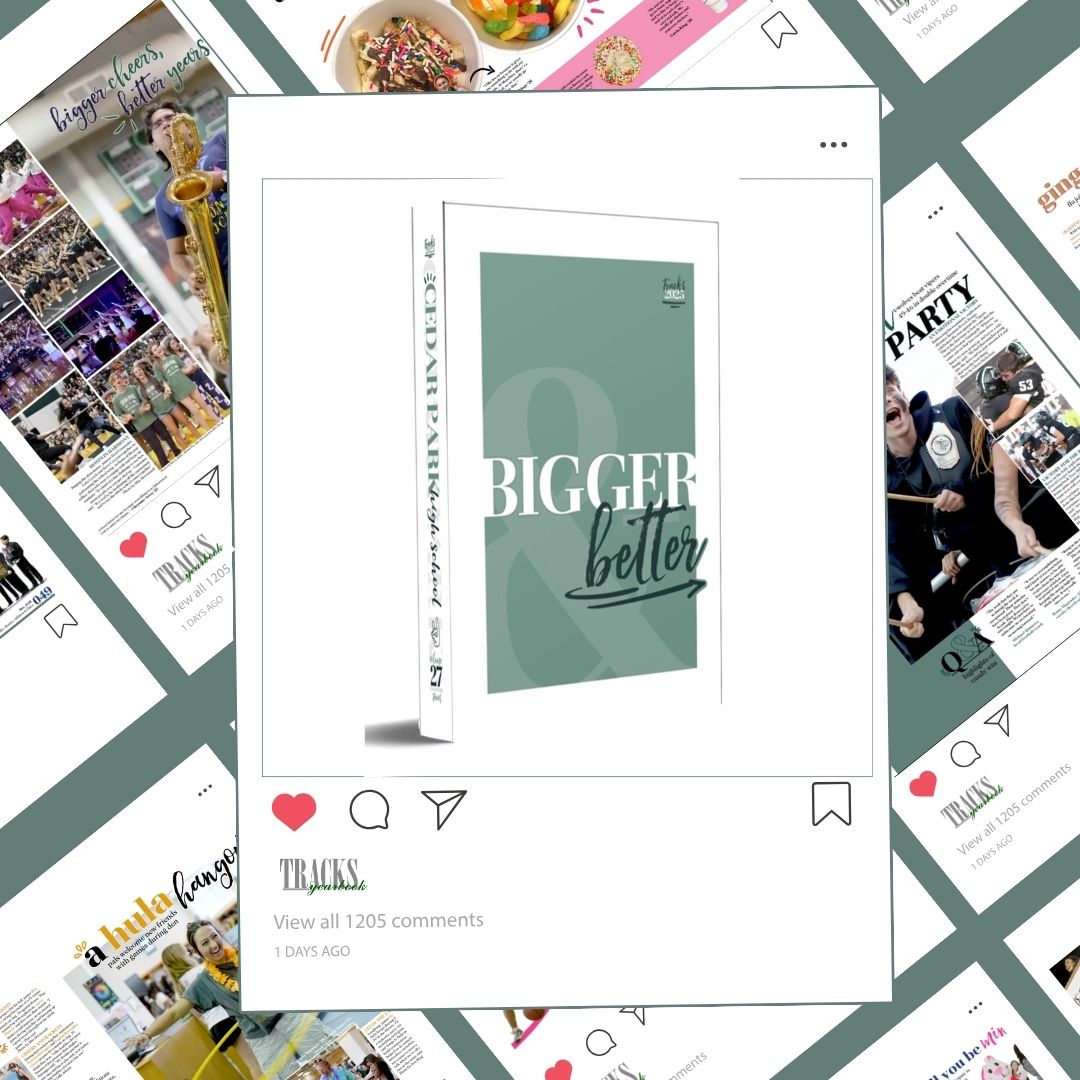










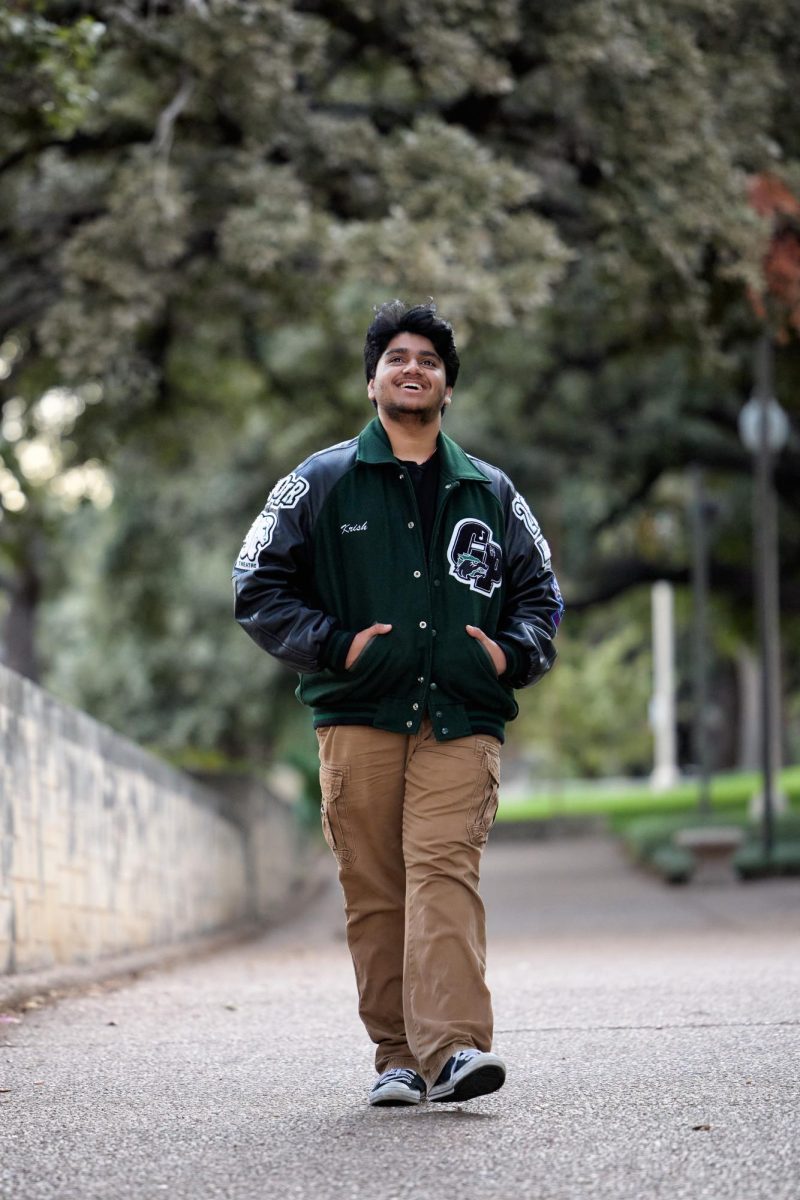

![Bringing her arm over her head and taking a quick breath, junior Lauren Lucas swims the final laps of the 500 freestyle at the regionals swimming competition on date. Lucas broke the school’s 18-year-old record for the 500 freestyle at regionals and again at state with a time of 4:58.63. “I’d had my eye on that 500 record since my freshman year, so I was really excited to see if I could get it at regionals or districts,” Lucas said. “ State is always a really fun experience and medaling for the first time was really great. It was a very very tight race, [so] I was a bit surprised [that I medaled]. [There were] a lot of fast girls at the meet in general, [and] it was like a dogfight back and forth, back and forth.” Photo by Kaydence Wilkinson](https://cphswolfpack.com/wp-content/uploads/2025/03/Kaydence-2.7-23-edit-2.jpg)
![As the support team sits and poses for a photo in the cafeteria with the counseling team they eagerly wait to start their day. "We [all] seem to be a team, I get up every day and there's days where I don't want to go to work today, but I'm thankful that I have a job and I'm blessed to have what I have," Christopherson said. Photo Courtesy of Julie Weltens.](https://cphswolfpack.com/wp-content/uploads/2025/01/AF9E8470-10D7-4C91-BF28-EC8F86BAB66C-1200x852.jpeg)
![Officer Stephanie Cash is in her second year as an SRO at CPHS. “Seeing [students] grow over the years has been kind of cool,” Officer Cash said. “Freshmen that [are] all over the place and then in the next couple of years get a little more squared away and go to class and do work and start thinking about the future. Being a part of a student's growth is the best way to measure my success as an SRO.” Photo Courtesy of Cedar Park Police Department's PIO, Alicia Gallagher.](https://cphswolfpack.com/wp-content/uploads/2024/12/CPHS-SRO-900x1200.jpg)


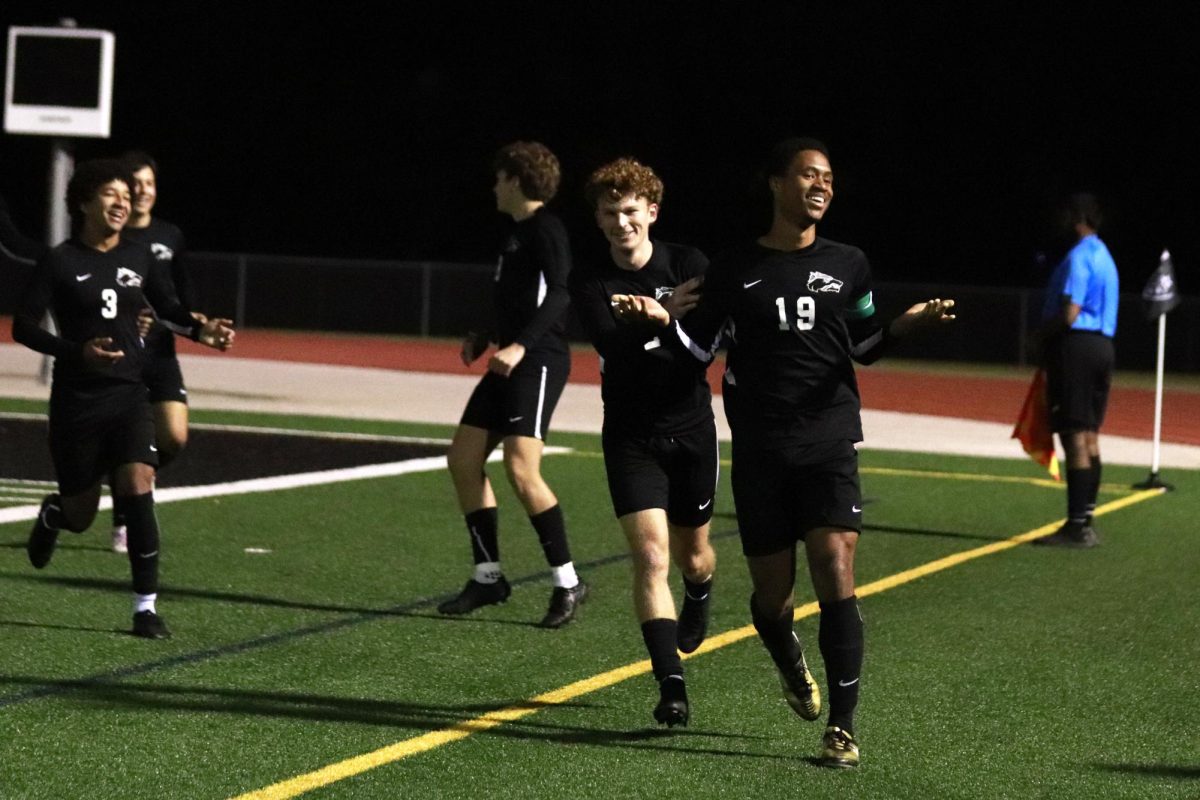
![Taking a breath as he raises his arm up and out of the water, sophomore Kaden Padilla swims the 500 freestyle at the UIL state meet on Feb. 21-22. Padilla placed 10th overall and second in the consolation final in the event, dropping two seconds. “My family was there, so being able to drop time for them was really special,” Padilla said. “It was awesome [finding out I advanced to the consolation finals]. I wasn’t expecting it, and I was very surprised. My parents being there definitely made me a lot happier knowing they got to see me swim in finals.” Photo by Skyler King.](https://cphswolfpack.com/wp-content/uploads/2025/03/kaden-padilla.jpg)

![Three defenders try to stop senior point guard Hope Edwards before the ball leaves her hands. The girls basketball team faced Liberty Hill on Feb 21, losing 58-40. “[My season was] definitely bittersweet,” Edwards said. It's definitely sad [because] I'm gonna miss all my teammates, my coaches and just the whole CP environment.”](https://cphswolfpack.com/wp-content/uploads/2025/03/julia-128-1200x800.jpg)













